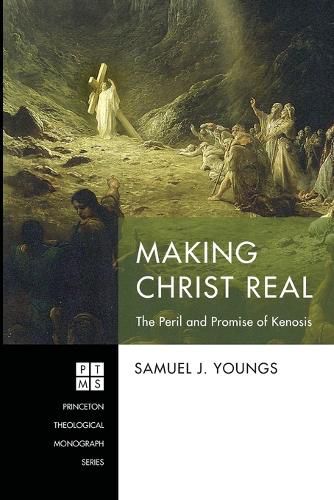Readings Newsletter
Become a Readings Member to make your shopping experience even easier.
Sign in or sign up for free!
You’re not far away from qualifying for FREE standard shipping within Australia
You’ve qualified for FREE standard shipping within Australia
The cart is loading…






This title is printed to order. This book may have been self-published. If so, we cannot guarantee the quality of the content. In the main most books will have gone through the editing process however some may not. We therefore suggest that you be aware of this before ordering this book. If in doubt check either the author or publisher’s details as we are unable to accept any returns unless they are faulty. Please contact us if you have any questions.
Kenosis, or self-emptying, poses a fundamental question to any theological discussion about Jesus Christ: "In becoming human, did God empty himself of any divine qualities?" Many variations on kenotic Christology have emerged over the past 200 years, most of them claiming to both preserve and highlight the true humanity and ecclesial significance of Jesus Christ. While there is much to commend in these efforts, Samuel Youngs contends that nearly all such kenotic attempts have, against their best intentions, fallen into an echo chamber of abstraction and metaphor, rendering their talk about Jesus Christ and analysis of the Gospels fundamentally "unreal" and lacking in material significance for today's living church. Most fundamentally, many kenotic accounts pay inadequate attention to Christ's lived accomplishment, his current presence, and the modes of praxis that he makes real in the world. In dialogue with the important movement known as Transformation Theology, Youngs unfolds a detailed critique of method and discourse in kenotic christologies. Turning then to the vibrant christological thought of Jurgen Moltmann, a different outlook on kenosis is articulated and defended, one that is relational, concrete, and praxiological.
$9.00 standard shipping within Australia
FREE standard shipping within Australia for orders over $100.00
Express & International shipping calculated at checkout
This title is printed to order. This book may have been self-published. If so, we cannot guarantee the quality of the content. In the main most books will have gone through the editing process however some may not. We therefore suggest that you be aware of this before ordering this book. If in doubt check either the author or publisher’s details as we are unable to accept any returns unless they are faulty. Please contact us if you have any questions.
Kenosis, or self-emptying, poses a fundamental question to any theological discussion about Jesus Christ: "In becoming human, did God empty himself of any divine qualities?" Many variations on kenotic Christology have emerged over the past 200 years, most of them claiming to both preserve and highlight the true humanity and ecclesial significance of Jesus Christ. While there is much to commend in these efforts, Samuel Youngs contends that nearly all such kenotic attempts have, against their best intentions, fallen into an echo chamber of abstraction and metaphor, rendering their talk about Jesus Christ and analysis of the Gospels fundamentally "unreal" and lacking in material significance for today's living church. Most fundamentally, many kenotic accounts pay inadequate attention to Christ's lived accomplishment, his current presence, and the modes of praxis that he makes real in the world. In dialogue with the important movement known as Transformation Theology, Youngs unfolds a detailed critique of method and discourse in kenotic christologies. Turning then to the vibrant christological thought of Jurgen Moltmann, a different outlook on kenosis is articulated and defended, one that is relational, concrete, and praxiological.